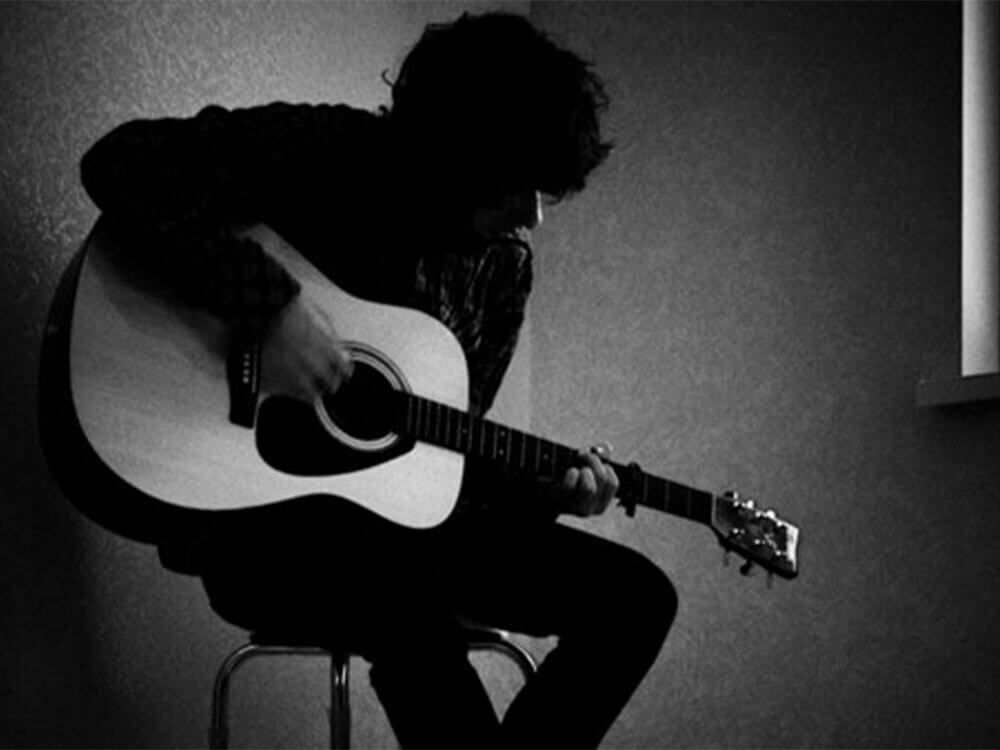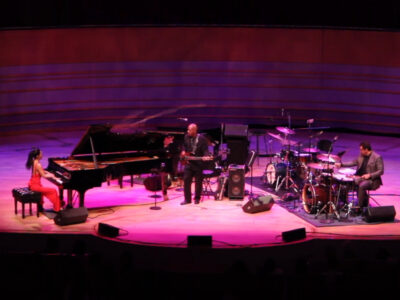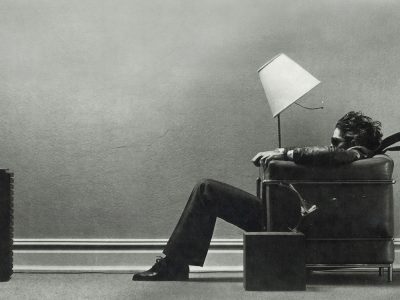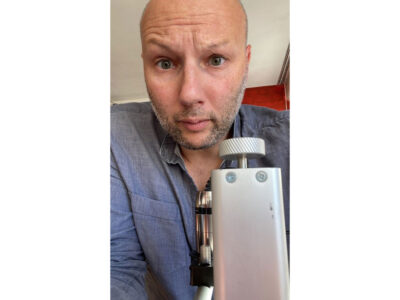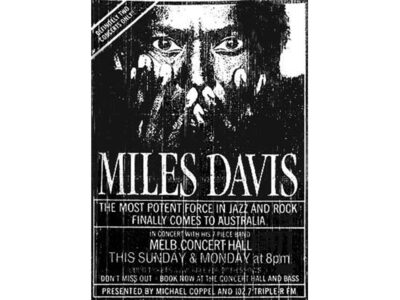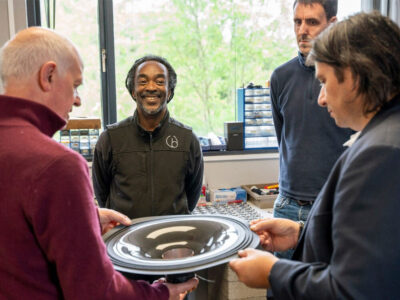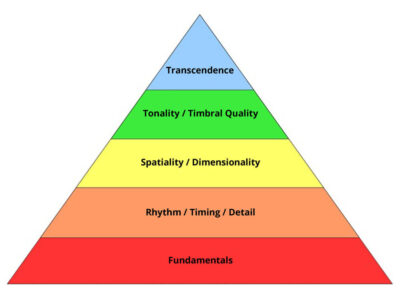Why do we like sad music?
Hey Doc! What’s wrong with me? Why do I feel better after listening to sad songs?
This one is a bit peculiar. Most of my music buddies suffer from the same affliction.
No, not the ‘Audiophilus Nervosa’ – the inability to listen to horrible sounding equipment or truly crap recordings. Nor ‘misophonia’ (the inability to resist driving a blunt butter knife into the individual making balloon art at a kids party or the person chewing loudly on fresh carrots at the same time every morning tea break in the office cubicle next to one’s own tiny part of corporate lebensraum).
No, this one is the odd refreshed feeling from having listened to Nick Cave, Mark Hollis, Dlina Volny, Skeleton Hands, Morrisey, Mahler, Fragrance, The Cure, John Lee Hooker Tim and Jeff Buckley, Nick Drake, Nirvana, Mark Lanegan, Leonard Cohen and basically sad sounding minor chords and keys. Joni Mitchell even called one album Blue to warn us of what was contained therein.
Well it turns out mental health professionals say sad music can be cathartic.
Do we have to be sad or see a glass half full in order to listen? Recently I was playing some “sad sack” music from an Eastern European specialist Dlina Volny. But one important voice from the back seat said “can we put on something a bit happier?”.
This listener explained she had recently struggled to escape from a war-torn region and this music I was playing was not helping her feel joy. We quickly changed to an upbeat channel and restored joy to the journey as I empathised with this team member.
So, perhaps it might be listeners who are internally happy in life might like listening to minor keys and chords and more contemplative material. I can name a few friends both here and abroad who are all happy in life (in general) but whose music is definitely on the “sad side”.
At a recent show in Sydney I played Mark Hollis’ Spirit of Eden album.
This was because a total stranger in the audience had asked if I had more eighties music after I had played John Foxx – The Garden as a demo. When I held the Hollis album up he exclaimed it was his favourite artist and album. Several more listeners exclaimed similar sentiments.
So what about some educated professionals – what do they say?
Let’s refer to: https://greatergood.berkeley.edu/article/item/why_sad_songs_make_you_feel_good
According to the writer Simon Macarthy Jones, he suggests one start with biological theories. He suggests “when we experience real-life loss, or empathise with another’s pain, hormones such as prolactin and oxytocin are released within us. These help us cope with loss and pain. They do so by making us feel calmed, consoled and supported.”
Feeling Adele’s pain, or recalling our own, may cause such chemical changes within us. Clicking on Adele’s song may be like clicking on our own metaphorical morphine drip.
The jury is still out on this theory. One study found no evidence that sad music increases prolactin levels. Yet other studies have hinted at a role for prolactin and oxytocin in making sad music feel good.
A key reason we enjoy sad songs is because they profoundly “move” us. This experience is sometimes called kama muta, a Sanskrit term meaning “moved by love.” Feeling moved can involve chills, goosebumps, a flood of emotions (including romantic ones), a warmth in our chest and elation.
But why do we feel moved? The American writer James Baldwin got at this when he reflected: “The things that tormented me most were the very things that connected me with all the people who were alive, who had ever been alive.” Similarly, feeling moved can come from us suddenly feeling closer to other people.
This may explain why the people most likely to feel moved by sad music are those high in empathy. Indeed, when we have listened to “30,” we may turn to reaction videos to see how others feel. This lets us share an emotional experience with others. A sense of communal sharing boosts our feeling of being moved and triggers feelings of comfort and belonging.
A related suggestion is that Adele’s sad music can be a friend to us. It can act as a social surrogate. Sad music can be experienced as an imaginary friend who provides support and empathy after loss.
Feeling moved can also result from memories being triggered of important moments of our lives. Adele’s songs are powerfully nostalgic. It may be nostalgia, rather than sadness, that we enjoy.
Indeed, when people listen to sad music, only around 25% say they actually feel sad. The remainder experience other, often related emotions, most commonly nostalgia. This feeling of nostalgia can help increase our sense of social connectedness, mitigate feelings of meaningless and reduce anxiety.
A completely different type of psychological theory is that Adele’s songs are emotional gyms. They give us a safe, controlled space in which we can explore simulated sadness. They are the emotional equivalent of Neo sparring with Morpheus in the “Matrix” movie.
Simulated sadness lets us experiment with and learn from this emotion. We can enhance our empathy, learn to better see things from other people’s perspectives and try out various responses to sadness. This may make us better prepared for when real loss strikes. Such learning experiences may have evolved to be pleasurable to encourage their use.
Alternatively, it could be that Adele’s songs aren’t pleasurable because they are sad or nostalgic. They may be pleasurable simply because they are beautiful. Sadness might just happen to coincide with beauty. Indeed, seeing acts of moral virtue or beauty have been suggested to provoke feelings of elevation and can touch, move, and inspire us.
We can also think at the cultural level. Here we can view the pleasure Adele’s songs gives us in terms of the meaning she helps us make. Adele takes hard life experiences and helps makes sense of them.
This is what much tragic art does. It takes the pain and the suffering and the sadness of the world and gives it meaning. As the German philosopher Friedrich Nietzsche once put it, someone who has a why to live can bear almost any how.
Ultimately, Adele’s songs will mean something different to each of us. We listen to sad music when we want to reflect, belong or relax. We listen to experience beauty, receive comfort or reminisce.
But to all of us, Adele’s songs say: “You are not alone in your pain. They let us feel her pain, share our suffering, and connect with others past and present. And in the sharedness of our humanity is beauty.”
So I’m gonna go out on a limb here… and tie it all back to audiophile roots.
I can feel Adele and appreciate her incredible talent. But my feeling happy with sad music is tempered by my audiophilia nervosa and misophonia. If the recording of the artist is truly crappy then my happiness at the sad music is saddened by my sadness about the production values that make great musicians and artists sound like MP3 players from the 90s. Then I realise the happiness and joy experienced by the producer selling 200 trillion copies of said MP3 sounding recordings and sharing the love karmically balances the universe and lets me go in search of great sounding sad music and find gems like Black Acid Soul.
Well I’d venture Phil Brown, Kenneth Wilkinson, Doug Sax, Kevin Gray, Joe Harley and other engineering and production luminaries help make sad music sound better.
So the question is Does Bernie Grundman hold the real key to my emotional well-being?
P.S Forgive me name dropping Friedrich Nietzsche it wasn’t meant to be pretentious. My philosophy lectures were fielded by Tim Brooke-Taylor, Bill Oddie and Graeme Garden OBE’s with a nod to Harry, Spike, Peter and Michael from an earlier philosophical era. So you can see I need some sad music to bring me to earthen realities…

